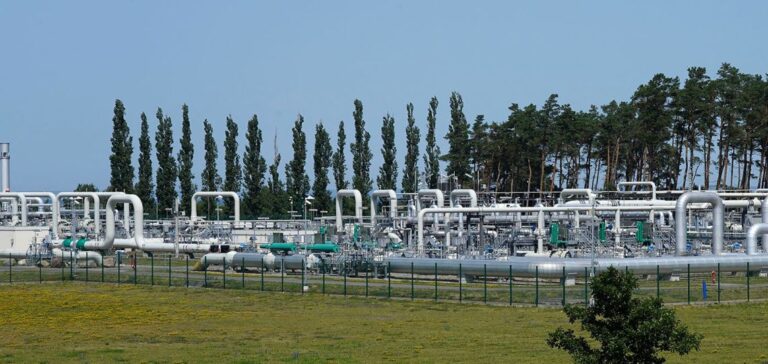The European Union has reached a crucial threshold in the management of its gas reserves, with 90% of its storage facilities now full.
This target, initially set for November, was reached for the second year running in August, a strong sign of the bloc’s determination to meet the energy challenges ahead.
This proactive strategy is designed to offset any disruption to supplies from Russia via Ukraine, as the gas transit agreement between Moscow and Kyiv is due to expire by the end of the year.
European countries have stepped up their efforts to diversify their sources of supply, with a particular focus on liquefied natural gas (LNG) imports from the USA and Norway.
Energy preparation in the face of uncertainty
The rapid filling of storage caverns meets a dual requirement: to secure heating needs for the winter months, while minimizing dependence on Russian gas flows.
Russia, once Europe’s main gas supplier, has seen its role diminish since the start of the conflict in Ukraine, as European countries have reduced their energy dependence on Moscow.
Europe also benefited from favorable conditions last winter, with relatively low energy demand due to mild temperatures.
This enabled the reservoir filling season to start on a solid footing, reducing pressure on energy markets during the summer months.
Ukraine faces considerable energy challenges
In contrast to the situation in Europe, Ukraine is struggling to maintain sufficient energy reserves.
The country’s gas reservoirs are only 23% full, an alarming level that reflects the difficulties associated with high import costs and recurrent attacks on energy infrastructure.
Ukraine’s gas installations, regularly targeted by bombardments, suffer frequent disruptions, further complicating the country’s preparations for winter.
This critical situation raises questions about Ukraine’s ability to ensure the continuity of its energy supplies in the midst of war.
European solidarity is therefore a key element in supporting Kyiv in this ordeal, particularly in a context where the energy stability of the entire continent could be put to the test.





















